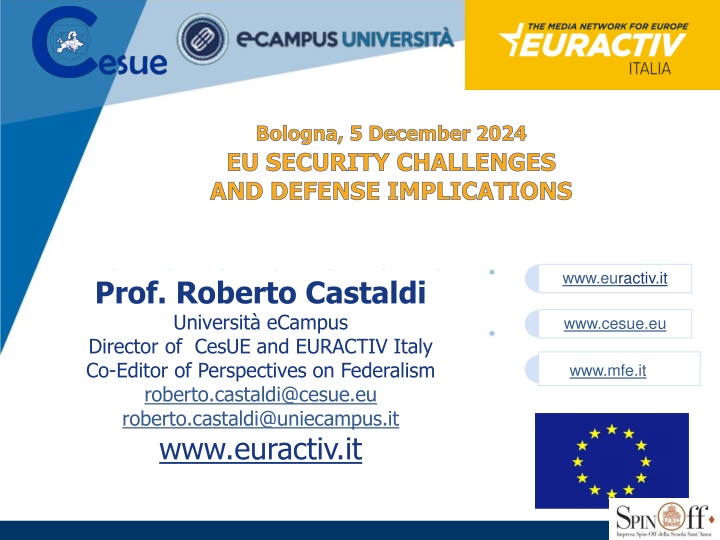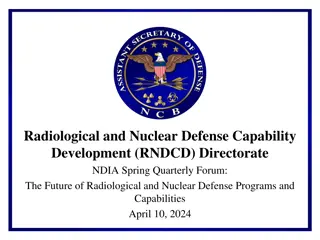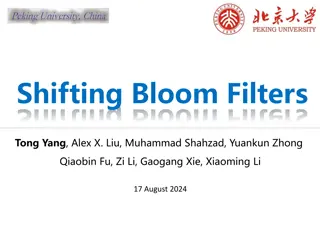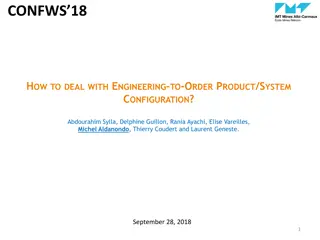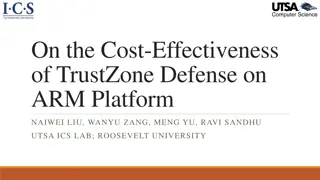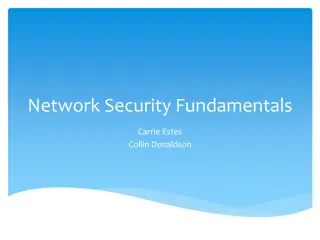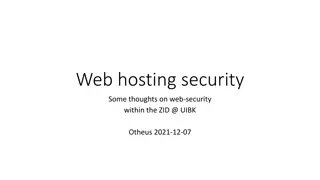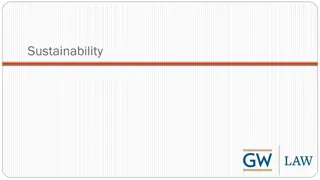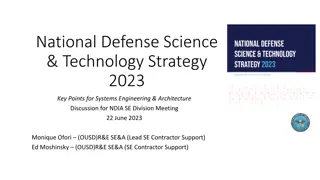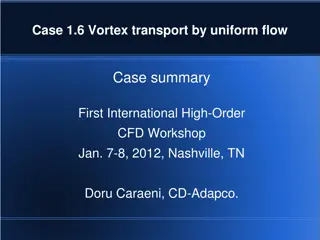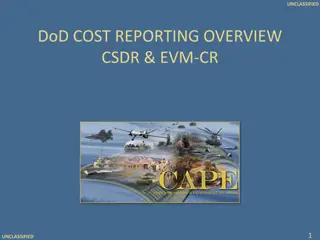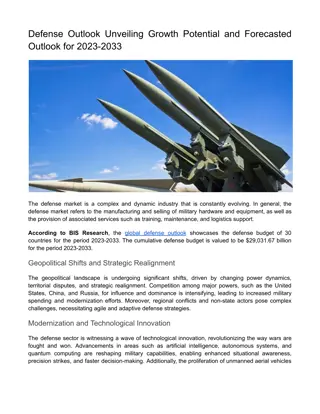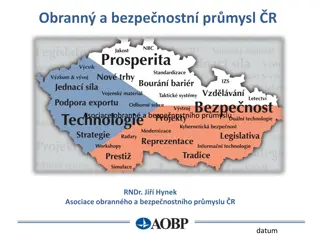EU Security Challenges and Defense Implications: Shifting World Order and European Defense Strategies
The global power dynamic is evolving, leading to a reevaluation of defense and security strategies in the EU. This article explores the impact of the changing world order on European defense policies, including the need for a unified approach, nuclear deterrence strategies, financial considerations, and enhancing partnerships with organizations like NATO.
Download Presentation

Please find below an Image/Link to download the presentation.
The content on the website is provided AS IS for your information and personal use only. It may not be sold, licensed, or shared on other websites without obtaining consent from the author.If you encounter any issues during the download, it is possible that the publisher has removed the file from their server.
You are allowed to download the files provided on this website for personal or commercial use, subject to the condition that they are used lawfully. All files are the property of their respective owners.
The content on the website is provided AS IS for your information and personal use only. It may not be sold, licensed, or shared on other websites without obtaining consent from the author.
E N D
Presentation Transcript
Bologna, 5 December 2024 EU SECURITY CHALLENGES AND DEFENSE IMPLICATIONS www.euwww.euractiv.it Prof. Roberto Castaldi Universit eCampus Director of CesUE and EURACTIV Italy Co-Editor of Perspectives on Federalism roberto.castaldi@cesue.eu roberto.castaldi@uniecampus.it www.euractiv.it www.cesue.euwww.cesue.eu www.mfe.it www.company.com
The end of the world order The demise of the material conditions underlying the post-conflict world order, centered on the dominance of the West in the major international organizations called upon to manage and sustain it. The shift in the balance of world power has led to the structural shift of the U.S. strategic focus to the Pacific, with a view to a global hegemonic clash with China. The European power vacuum, i.e., the inability of the European Union to provide itself with a single foreign and defense policy.
To create a European defence Beside military industrial policy we need to decide: What military instruments to pull together? What nuclear deterrence? How to finance it? What governance? Special Report in Italian on Euractiv: https://euractiv.it/section/mondo/special_report/e-lora- della-difesa-europea/
A dual model for European defence Relationship with NATO (which already defines the standards for the Europeans) to turn it from the tool of US protection (and hegenony), to an equal partnership (possibility for the EU to join the Atlantic Pact) Air shield as part of Eu defence (Polish proposal) Rapid Reaction Force (60.000 of Helsinki 1999) Defence Force (250.000 planned by NATO Madrid summit) Possibly exploit some aspects of EDC Treaty
What nuclear deterrence? European defence requires a nuclear deterrence strategy and agreement Europeanization of the force de frappe + nuclear capabilities of other MS thanks to bilateral agreements with US and within NATO France is the obstacle, just like in 1954
How to finance it? Create incentives for national governments to move to EU defence, because national one DO NOT WORK: 35% of US expenditures with 10% capacity Pull together the rise of military budgets after 2022 (Draghi proposal): roughly 25%; or 20% of national military budgets (like with reserves in the EMU) Take out of the deficit calculation the national contributions to the European Defence Fund, the European Peace Facility, PESCO projects and other EU defence tools (like with EFSI or Juncker Plan) Eurobonds (eg. 50% debt e 50% from previous options)
Governance European Council as collective presidency (CH model) defines by QMV political and defence priorities. But foreign and defence policies managed by the Commission, which represents the EU in the international organizations. Unilateral application of UN Charter Ch. VII and start its reform Pull together quotas in IMF and WB and start their reform
How to get there? Treaty Reform for a comprehensive deal (defence, energy and fiscal union) PESCO (eg. Italy joins Eurocorps if Europeanised though PESCO, to have a EU centre of command and control) Separate Treaty among willing MSs: difficult due to Euro, but possible because 6 MSs (D, F, I, ES, PL, NL) have 75% of military expenditures. With GR, SV, BE up to 86%. All other 18 only 14%.
Thank you for yout attention!
